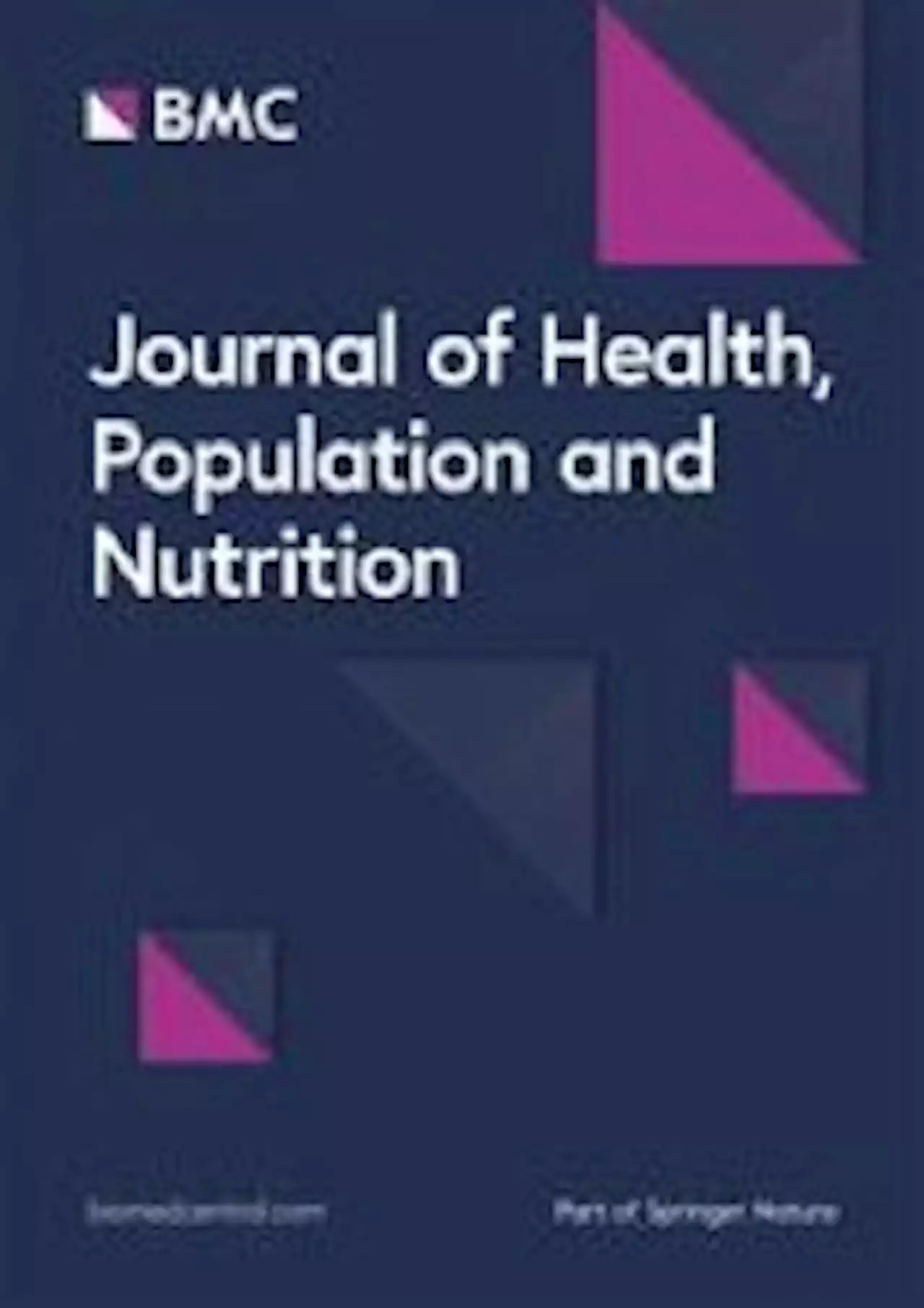New study links contraceptive pills and depression UU_University
In the time-dependent analysis, continued use of OCs was not associated with an increased rate of depression . However, both recent and previous OC users had an increased hazard of depression , respectively, compared with never users. The increased hazard of depression in previous users was driven by adolescent OC users , whereas no significant association was found for adult OC users 2 years after discontinuing .
**Parous women were followed until 1 year before delivery.Sensitivity analysis on the subcohort of women who self-identified as white did not yield any marked changes to the risk estimates . Similar estimates were also found when women with a medical indication for OC use and with other psychiatric disorders were excluded . In the sensitivity analysis where parous women were followed until 1 year before giving birth or depression , the HRs were slightly higher or similar .
Ireland Latest News, Ireland Headlines
Similar News:You can also read news stories similar to this one that we have collected from other news sources.
 The benefit of vegetarian diets for reducing blood pressure in Taiwan: a historically prospective cohort study - Journal of Health, Population and NutritionObjective Past vegetarians research has often found that they have lower blood pressure (BP). Effects may include their lower BMI and higher intake levels of fruit and vegetables. Besides, the study pursues to extend this evidence in a diverse population containing vegans, lacto-ovo vegetarians and omnivores. Design The study analyzed data on five hundred vigorous individuals aged 20 years or older from a standard medical screening program and provided validated questionnaire. Criteria were established for vegan, lacto-ovo vegetarian, partial vegetarian and omnivorous dietary patterns. Setting Health screening programs were conducted at a standard medical screening program in Taiwan between 2006 and 2017. Dietary data were gathered by self-administered questionnaire. Subjects Five hundred Taiwanese subjects representing the cohort. Results Multiple regression analyses confirmed that the vegan vegetarians had lower systolic and diastolic BP (mmHg) than omnivorous Taiwanese (β = − 6.8, p 139 mmHg or diastolic BP | 89 mmHg or routine of antihypertensive medications, the odds ratio of hypertension compared with omnivores was 0.37 (95% CI = 0.19–0.74), 0.57 (95% CI = 0.36–0.92) and 0.92 (95% CI = 0.50–1.70), respectively, for vegans, lacto-ovo vegetarians and partial vegetarians. Results were reduced after adjustment for BMI. Conclusions The study concludes from this relatively large study that vegetarians, especially vegans, with otherwise diverse characteristics but stable diets, do have lower systolic and diastolic BP and less hypertension than omnivores.
The benefit of vegetarian diets for reducing blood pressure in Taiwan: a historically prospective cohort study - Journal of Health, Population and NutritionObjective Past vegetarians research has often found that they have lower blood pressure (BP). Effects may include their lower BMI and higher intake levels of fruit and vegetables. Besides, the study pursues to extend this evidence in a diverse population containing vegans, lacto-ovo vegetarians and omnivores. Design The study analyzed data on five hundred vigorous individuals aged 20 years or older from a standard medical screening program and provided validated questionnaire. Criteria were established for vegan, lacto-ovo vegetarian, partial vegetarian and omnivorous dietary patterns. Setting Health screening programs were conducted at a standard medical screening program in Taiwan between 2006 and 2017. Dietary data were gathered by self-administered questionnaire. Subjects Five hundred Taiwanese subjects representing the cohort. Results Multiple regression analyses confirmed that the vegan vegetarians had lower systolic and diastolic BP (mmHg) than omnivorous Taiwanese (β = − 6.8, p 139 mmHg or diastolic BP | 89 mmHg or routine of antihypertensive medications, the odds ratio of hypertension compared with omnivores was 0.37 (95% CI = 0.19–0.74), 0.57 (95% CI = 0.36–0.92) and 0.92 (95% CI = 0.50–1.70), respectively, for vegans, lacto-ovo vegetarians and partial vegetarians. Results were reduced after adjustment for BMI. Conclusions The study concludes from this relatively large study that vegetarians, especially vegans, with otherwise diverse characteristics but stable diets, do have lower systolic and diastolic BP and less hypertension than omnivores.
Read more »
 Gut microbiome transitions across generations in different ethnicities in an urban setting—the HELIUS study - MicrobiomeBackground During the course of history, various important lifestyle changes have caused profound transitions of the gut microbiome. These include the introduction of agriculture and animal husbandry, a shift from a nomadic to a more sedentary lifestyle, and recently increased levels of urbanization and a transition towards a more Western lifestyle. The latter is linked with shifts in the gut microbiome that have a reduced fermentative capability and which are commonly associated with diseases of affluence. In this study, in which 5193 subjects are included, we investigated the direction of microbiome shifts that occur in various ethnicities living in Amsterdam by comparing 1st and 2nd generation participants. We furthermore validated part of these findings with a cohort of subjects that moved from rural Thailand to the USA. Results The abundance of the Prevotella cluster, which includes P. copri and the P. stercorea trophic network, diminished in the 2nd generation Moroccans and Turks but also in younger Dutch, whilst the Western-associated Bacteroides/Blautia/Bifidobacterium (BBB) cluster, which has an inverse correlation with α-diversity, increased. At the same time, the Christensenellaceae/Methanobrevibacter/Oscillibacter trophic network, which is positively associated with α-diversity and a healthy BMI, decreased in younger Turks and Dutch. Large compositional shifts were not observed in South-Asian and African Surinamese, in whom the BBB cluster is already dominant in the 1st generation, but ASV-level shifts towards certain species, associated amongst others with obesity, were observed. Conclusion The Moroccan and Turkish populations, but also the Dutch population are transitioning towards a less complex and fermentative less capable configuration of the gut microbiota, which includes a higher abundance of the Western-associated BBB cluster. The Surinamese, whom have the highest prevalence of diabetes and other diseases of affluence, are already dominated by t
Gut microbiome transitions across generations in different ethnicities in an urban setting—the HELIUS study - MicrobiomeBackground During the course of history, various important lifestyle changes have caused profound transitions of the gut microbiome. These include the introduction of agriculture and animal husbandry, a shift from a nomadic to a more sedentary lifestyle, and recently increased levels of urbanization and a transition towards a more Western lifestyle. The latter is linked with shifts in the gut microbiome that have a reduced fermentative capability and which are commonly associated with diseases of affluence. In this study, in which 5193 subjects are included, we investigated the direction of microbiome shifts that occur in various ethnicities living in Amsterdam by comparing 1st and 2nd generation participants. We furthermore validated part of these findings with a cohort of subjects that moved from rural Thailand to the USA. Results The abundance of the Prevotella cluster, which includes P. copri and the P. stercorea trophic network, diminished in the 2nd generation Moroccans and Turks but also in younger Dutch, whilst the Western-associated Bacteroides/Blautia/Bifidobacterium (BBB) cluster, which has an inverse correlation with α-diversity, increased. At the same time, the Christensenellaceae/Methanobrevibacter/Oscillibacter trophic network, which is positively associated with α-diversity and a healthy BMI, decreased in younger Turks and Dutch. Large compositional shifts were not observed in South-Asian and African Surinamese, in whom the BBB cluster is already dominant in the 1st generation, but ASV-level shifts towards certain species, associated amongst others with obesity, were observed. Conclusion The Moroccan and Turkish populations, but also the Dutch population are transitioning towards a less complex and fermentative less capable configuration of the gut microbiota, which includes a higher abundance of the Western-associated BBB cluster. The Surinamese, whom have the highest prevalence of diabetes and other diseases of affluence, are already dominated by t
Read more »
 Obesity impairs the brain's response to nutrients, suggests studyBrain responses to specific nutrients are diminished in individuals with obesity and are not improved after weight loss, according to a study led by Amsterdam UMC and Yale University, published today in Nature Metabolism.
Obesity impairs the brain's response to nutrients, suggests studyBrain responses to specific nutrients are diminished in individuals with obesity and are not improved after weight loss, according to a study led by Amsterdam UMC and Yale University, published today in Nature Metabolism.
Read more »
 Driver disguises himself as car seat for study👻🚗 A 'ghost driver' was used as part of a study to learn how pedestrians react to driverless cars. Read more:
Driver disguises himself as car seat for study👻🚗 A 'ghost driver' was used as part of a study to learn how pedestrians react to driverless cars. Read more:
Read more »
 Flight turbulence increasing as planet heats up - studyResearchers found that severe turbulence had increased 55% between 1979 and 2020 on a typically busy North Atlantic route.
Flight turbulence increasing as planet heats up - studyResearchers found that severe turbulence had increased 55% between 1979 and 2020 on a typically busy North Atlantic route.
Read more »
 New study reveals alarming impact of ultra-processed foods on cardiometabolic healthNew study reveals alarming impact of ultra-processed foods on cardiometabolic health UltraProcessedFood Cardiometabolic MetabolicSyndrome Diet Health UPFConsumption HealthImpact FoodChoices HealthyLiving Nutrition ATHjournal
New study reveals alarming impact of ultra-processed foods on cardiometabolic healthNew study reveals alarming impact of ultra-processed foods on cardiometabolic health UltraProcessedFood Cardiometabolic MetabolicSyndrome Diet Health UPFConsumption HealthImpact FoodChoices HealthyLiving Nutrition ATHjournal
Read more »
